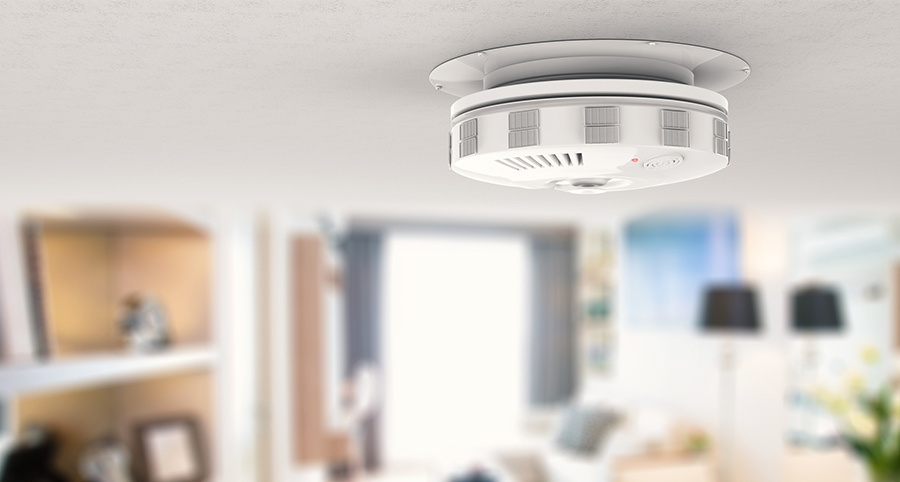Are there differences between traditional smoke detectors vs. monitored fire alarms in Beaumont?

In the Beaumont smoke detector vs. monitored fire alarm discussion, it's evident that a monitored fire alarm is the superior choice"> for your home. Smoke detectors are an important consideration in guarding your place from fire, but they have several drawbacks. On the other hand, monitored fire alarms provide more ways to discover an emergency and may contact your support team when the unthinkable happens. Pairing your fire alarms to a home security system also delivers various extra benefits that your ordinary smoke detectors can only hope for.
The limitations of ordinary smoke alarms in [[targetlocaion]]
Defending against fire is a chief concern for homeowners, and smoke detectors perform a critical role in keeping your family safe. However, smoke detectors have some shortcomings. To illustrate, they will only react to smoke, not heat. In the event there is an emergency in your residence, you may not be alerted unless the smoke ascends to the smoke detector. While there are further significant signs of fire -- like a marked heat increase -- if there's no smoke, you will fail to get a warning from your smoke detector.
What’s more, smoke detectors only activate if they find enough smoke. When a fire begins slowly, you might not be warned until the flames are out of control. Some smoke detectors employ more than one sensor, which means they will recognize smoke from both a blazing inferno and smoldering remnants. If they sound their alarm, it's up to the homeowner to contact emergency services after they safely leave the premises.
Monitored fire alarms do much more than regular smoke detectors
While they have a similar appearance to standard smoke detectors, monitored fire alarms can do much more. If connected to a total home security installation, they will:
- Identify fire with different sensor types: Like a traditional smoke detector, your monitored component can trigger from a roaring blaze or smoldering embers. It will emit a high-decibel warning if it senses a hazardous situation.
- Discover fire due to a rapid temperature increase: A monitored fire alarm can also go off if it senses an unusual increase in heat. Typically, heat arrives before smoke. Having additional methods to identify a fire leads to additional methods to keep your family safe.
- Alerts your dedicated monitoring representatives: Fires can take place when you are at your house or not. Regardless, your fire alarms will alert your monitoring specialists, who are able to quickly contact emergency services. When every tick of the clock is critical, it's nice to realize that somebody is always watching over your house.
- Connects to home automation: Although the chief job of a fire alarm is to recognize fire and call for assistance, it can also integrate with other automated devices. For instance, a tripped alarm might prompt your system to start the exhaust fan to slow the fire or initiate the lights so you may locate the safest exit out of the house.
Your monitored fire alarms are an important aspect of a complete smart home
The best method to get the most from your fire alarms is to connect them with a Vivint home security system. Contact a Vivint security agent today and customize the ideal smart home for your family. Call (409) 978-7822 or submit the form on this page to begin.